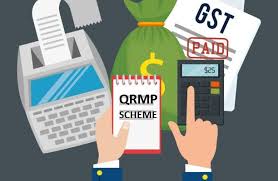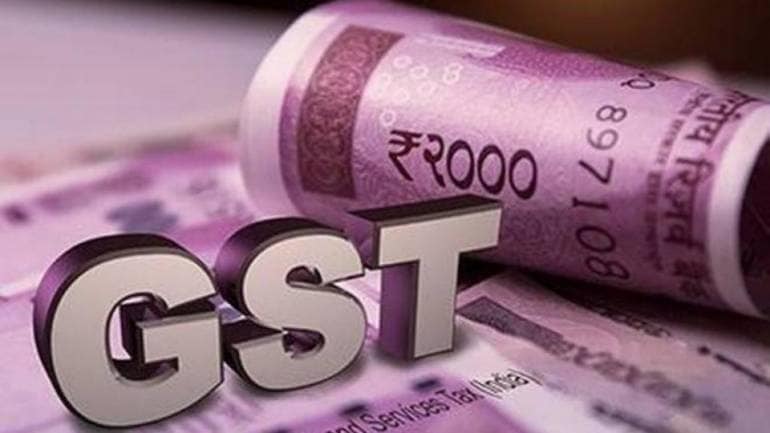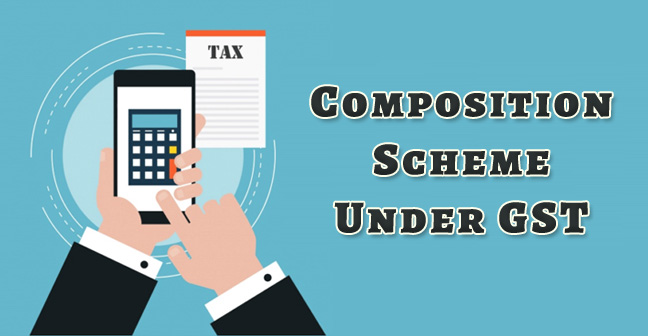The Madras High Court in its recent ruling in the case of Shri Nandhi Dhall Mills India Pvt. Ltd. v. Senior Intelligence Officer, DGGST & Ors. has directed the Revenue Department to refund the amount of Rs 2 crore collected from the assessee during the investigation.
It was held that, merely because the assessee had signed a statement admitting tax liability under the stress of investigation and had also made a few payments as per the statement, cannot lead to self-assessment or self-ascertainment. It was held that ascertainment contemplated under Section 74(5) of the CGST Act,2017 is of the nature of self-assessment and amounts to a determination which is unconditional
Facts of the Case:
- The petioner Shri Nandhi Dhall Mills India Pvt. Ltd. is registered as a Small Scale Industry and is engaged in the business of dealing in pulses,dhals, and flour and also manufactures food products, grain mill products and dal.
- An investigation was conducted by the officials of the Director General of Goods and Services Tax (“the Respondents”) in the premises of the Petitioner on October 22, 2019 and various documents and registers were seized. In the course of the investigation, a statement was recorded to the effect that the Petitioner has not discharged its GST liability correctly and it had accepted that there has been a mistake in computation of GST liability and assured the Respondents that the liability would be discharged along with applicable interest.
- Further, a scheme of payment was set out and the undertaking was signed by the Managing Director of the Petitioner on October 22, 2019. Further, the Petitioner remitted a sum of Rs 1 crore in FORM GST DRC-03 corresponding to Rule 142(2) and Rule 142(3) of the CGST Rules, 2017 read with Section 74(5) of the CGST Act,2017 on the same day. The second installment of the tax amounting to Rs 1 crore was paid on October 30, 2019.
- Further, the Managing Director of the Petitioner vide letter dated November 05, 2019 retracted its earlier statement and stated that despite we are supplying Nil/exempted goods, we have been forcibly made to make the payment of GST liability for the tax period July 2017 to March 2018 of Rs.1 crore immediately on the same day i.e. 22-10-2019 under the influence of coercion, threat and in a state of panic without providing any workings of determination of tax liability. It was stated that the Managing Director signed the MAHAZAR and paid an amount under the influence of coercion, threat and in a state of panic without giving an opportunity to read the content of the Mahazar and without providing the workings of the actual determination of tax liability;
Prayer in the writ filed:
Writ Petition filed under Article 226 of the Constitution of India praying to Writ of Mandamus, direction restraining the respondents from demanding any amount from the petitioner except by following due process of law and further direct to refund of Rs.2 crores along with statutory interest under CGST Act 2017 and also return the documents seized at the time of search on 22.10.2019.
The petitioner has relied on various decisions in support of its contention that any amount collected during investigation should be refunded in the absence of any determination of demand as against the concerned assessee.
According to the revenue, the remittances made by the petitioner during investigation in terms of Section 74(5) amount to ‘self- ascertainment’. Having remitted two instalments of the tax as per its own ascertainment, it cannot now pray for a mandamus seeking refund of the amount. After all, revenue argues, the petitioner is well aware of the fact that its transactions are liable to tax and any remittances effected would be adjusted against final tax liability
Order of Madras High Court: Deliberation and Ruling
- Merely because an assessee has, under the stress of investigation, signed a statement admitting tax liability and has also made a few payments as per the statement, cannot lead to self-assessment or self-ascertainment.
- The ascertainment contemplated under Section 74(5) is of the nature of self-assessment and amounts to a determination which is unconditional, and not one that is retracted as in the present case. Had such ascertainment/self-assessment had been made, there would be no further proceedings contemplated, as Section 74(6) states that with ascertainment of demand in Section 74(5), no proceedings for show cause under Section 74(1) shall be issued. In this case, enquiry and investigation are on-going, personal hearings have been afforded and both the parties are fully geared towards issuing/receiving a show cause notice and taking matters forward. Thus, the understanding and application of Section 74(5) in this case, is, in my view, wholly misconceived.
In the light of the discussion as above, the Madras High Court held that mandamus as sought for by the petitioner is issued. The amount collected, of Rupees Two Crores shall be refunded to the petitioner within a period of four (4) weeks from today. Further, restrained the Respondents from demanding any amount from the Petitioner except by following the due process of law.
Relevant Provisions:
Section 74 of the CGST Act,2017:
“Determination of tax not paid or short paid or erroneously refunded or input tax credit wrongly availed or utilised by reason of fraud or any wilfull-misstatement or suppression of facts.
74. (1) Where it appears to the proper officer that any tax has not been paid or short paid or erroneously refunded or where input tax credit has been wrongly availed or utilised by reason of fraud, or any wilful-misstatement or suppression of facts to evade tax, he shall serve notice on the person chargeable with tax which has not been so paid or which has been so short paid or to whom the refund has erroneously been made, or who has wrongly availed or utilised input tax credit, requiring him to show cause as to why he should not pay the amount specified in the notice along with interest payable thereon under section 50 and a penalty equivalent to the tax specified in the notice.
(2) The proper officer shall issue the notice under sub-section (1) at least six months prior to the time limit specified in sub-section (10) for issuance of order.
(3) Where a notice has been issued for any period under sub-section (1), the proper officer may serve a statement, containing the details of tax not paid or short paid or erroneously refunded or input tax credit wrongly availed or utilised for such periods other than those covered under sub-section (1), on the person chargeable with tax.
(4) The service of statement under sub-section (3) shall be deemed to be service of notice under sub-section (1) of section 73, subject to the condition that the grounds relied upon in the said statement, except the ground of fraud, or any wilful-misstatement or suppression of facts to evade tax, for periods other than those covered under sub-section (1) are the same as are mentioned in the earlier notice.
(5) The person chargeable with tax may, before service of notice under sub-section (1), pay the amount of tax along with interest payable under section 50 and a penalty equivalent to fifteen per cent. of such tax on the basis of his own ascertainment of such tax or the tax as ascertained by the proper officer and inform the proper officer in writing of such payment.
(6) The proper officer, on receipt of such information, shall not serve any notice under sub-section (1), in respect of the tax so paid or any penalty payable under the provisions of this Act or the rules made thereunder.
(7) Where the proper officer is of the opinion that the amount paid under sub-section (5) falls short of the amount actually payable, he shall proceed to issue the notice as provided for in sub-section (1) in respect of such amount which falls short of the amount actually payable.
(8) Where any person chargeable with tax under sub-section (1) pays the said tax along with interest payable under section 50 and a penalty equivalent to twenty-five per cent. of such tax within thirty days of issue of the notice, all proceedings in respect of the said notice shall be deemed to be concluded.
(9) The proper officer shall, after considering the representation, if any, made by the person chargeable with tax, determine the amount of tax, interest and penalty due from such person and issue an order.
(10) The proper officer shall issue the order under sub-section (9) within a period of five years from the due date for furnishing of annual return for the financial year to which the tax not paid or short paid or input tax credit wrongly availed or utilised relates to or within five years from the date of erroneous refund.
(11) Where any person served with an order issued under sub-section (9) pays the tax along with interest payable thereon under section 50 and a penalty equivalent to fifty per cent. of such tax within thirty days of communication of the order, all proceedings in respect of the said notice shall be deemed to be concluded.
Explanation 1.- For the purposes of section 73 and this section,-
(i) the expression “all proceedings in respect of the said notice” shall not include proceedings under section 132;
(ii) where the notice under the same proceedings is issued to the main person liable to pay tax and some other persons, and such proceedings against the main person have been concluded under section 73 or section 74, the proceedings against all the persons liable to pay penalty under sections 122 and 125 are deemed to be concluded.
Explanation 2.––For the purposes of this Act, the expression “suppression” shall mean non-declaration of facts or information which a taxable person is required to declare in the return, statement, report or any other document furnished under this Act or the rules made thereunder, or failure to furnish any information on being asked for, in writing, by the proper officer.”
READ / DOWNLOAD ORDER:
Follow us for free tax updates : facebook Twitter
***
Subscribe our portal and get FREE Tax e-books , quality articles and updates on your e-mail.
Resolve your GST queries from national level experts on GST free of cost.
Frah Saeed is a law graduate specializing in the core field of indirect taxes and is the Co-founder of taxwallah.com. She has authored many publications on GST and is into full-time consultancy on GST to big corporates. She as a part of taxwallah.com heads a team comprising of Chartered Accountants and Advocates and plays a key role in our mission to disseminate GST knowledge to all.




